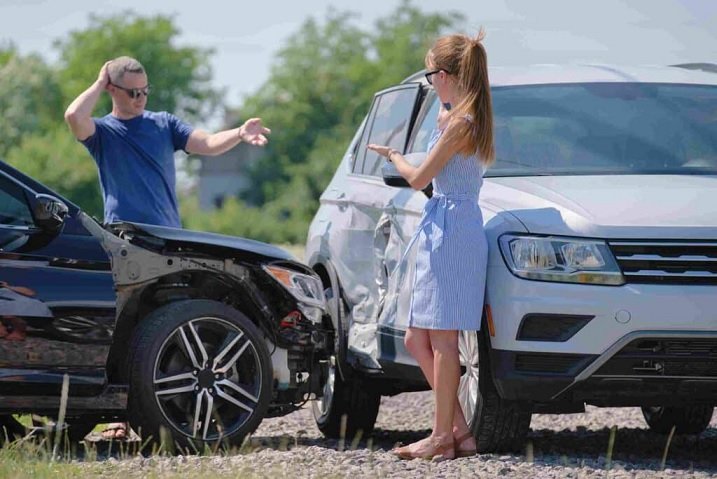If you have experienced a car accident for which you were not liable The experience of seeking deserved compensation after a car accident teaches you how frustrating the process can be. The key factor that determines whether you win or lose your case revolves around evidence.
Lacking strong evidence to support your assertions could leave you empty-handed. That’s just how the system works.
Insurance companies are not eager to give out large payments. Insurance companies will use every possible tactic to reduce your payout amount or reject your claim completely.
So what’s the solution? Create an unbreakable legal case with clear evidence that shows who caused the harm and what damages you experienced.
Key Points You’ll Discover
- Why Evidence Makes or Breaks Your Case
- The Evidence Arsenal: What You Need to Win
- Time Is Not On Your Side: Gather Evidence Quickly
- Evidence Blunders That Can Wreck Your Case
- Working With Professionals to Strengthen Your Evidence
Why Evidence Makes or Breaks Your Case
Have you ever questioned why certain car accident victims receive large settlements while others receive minimal compensation for comparable injuries?
The answer usually comes down to evidence. If you lack evidence you will only have your claim against theirs. You typically lose when you go into court without evidence to support your case.
Here’s something most people don’t realize…
The legal responsibility to prove your claim rests with you when you file a car accident lawsuit. The burden of proof rests completely with you.
- The other driver was negligent
- Their negligence caused the accident
- You suffered real damages as a result
Validating any claims requires proper evidence to support them. Working with experienced car accident lawyers in Kalamazoo can make a significant difference in building your case with strong, admissible evidence that tells your story convincingly.
The Evidence Arsenal: What You Need to Win
Not all evidence is created equal. Certain types of evidence can greatly boost your case while others have minimal impact.
1. Police Reports: Your Foundation
The police report serves as the formal documentation of the accident details.
- Date, time, and location details
- Names and contact information
- Officer’s assessment of events
- Any citations issued
Pro tip: Always call the police after an accident. Your case is significantly weakened if you don’t have a police report.
2. Photos: Worth a Thousand Arguments
Pictures document what words simply cannot. Capture:
- Vehicle damage from multiple angles
- The entire accident scene and road conditions
- Skid marks and debris
- Capture photographs of your visible injuries and continue to document their progression.
Pro tip: Capture numerous photos because you won’t have the chance to redo this later.
3. Medical Records: Proving Your Pain
Medical records serve as proof that links your injuries to the accident.
- Emergency room visit reports
- Doctor’s diagnosis and treatment plans
- All medical bills and receipts
Without these records, compensation becomes nearly impossible.
4. Witness Statements: Unbiased Accounts
Witnesses provide powerful neutral perspectives. Get their:
- Full contact information
- Detailed statements
- Permission for future contact
Collect witness information yourself rather than depending only on police officers.
5. Electronic Data: Modern Evidence
Today’s digital evidence can be particularly compelling:
- Dashcam footage
- Traffic camera recordings
- Cell phone records
- Vehicle black box data
Time Is Not On Your Side: Gather Evidence Quickly
One of the biggest mistakes? Waiting too long to collect evidence. After an accident occurs evidence disappears at a rapid pace.
Think about it:
- The next rainfall will erase skid marks from the roadway.
- Vehicles get repaired or totaled within days
- Witnesses forget crucial details or move away
- Your injuries heal and become less visible
Begin collecting evidence right away because the situation demands it. The longer you wait each day the more difficult it becomes to prove your case.
Remember that the “statute of limitations” represents the legal time limit to file car accident lawsuits. Failing to meet this deadline means you forfeit your ability to claim compensation.
Evidence Blunders That Can Wreck Your Case
Following an accident it’s common to commit errors that destroy your lawsuit chances. Watch out for these common ones:
1. Admitting Fault at the Scene
A single apologetic statement you make at the scene can destroy your legal case.
What to do instead: Exchange contact details and make sure everyone is safe.
2. Failing to Document Everything
Capturing pictures of vehicle damage alone will not provide the necessary evidence for your case.
What to do instead: Take detailed notes of all relevant factors including the condition of the road and the weather as well as any injuries sustained.
3. Delaying Medical Care
The delay between the accident and seeking medical care generates a harmful discontinuity in your evidence timeline.
What to do instead: Any injury requires urgent medical attention without considering its severity.
4. Giving Recorded Statements Too Quickly
Adjusters want to hear something from you that they can use to their advantage.
What to do instead: Make sure to consult with an attorney before providing any recorded statements.
Working With Professionals to Strengthen Your Evidence
Basic evidence collection proves insufficient for complicated accidents involving severe injuries or intricate liability questions.
Professional assistance becomes crucial when faced with these situations.
Accident Reconstruction Experts
The accident reconstruction specialists examine the evidence to establish the precise sequence of events leading to the accident. These experts produce graphical reconstructions which demonstrate fault in an unmistakable way.
Medical Experts
Medical professionals provide testimony regarding injury severity and necessary treatments while predicting future health outcomes which enhances your damages claim.
Injury-related car accident settlements average $30,416 but experience significant variation depending on injury severity. People who collaborate with professional experts usually obtain settlement amounts that exceed the average value.
Preserving and Organizing Your Evidence
Collecting strong evidence requires proper preservation and effective presentation to ensure its impact.
- Make digital copies of every photograph and document you have.
- Document the collection process of each evidence piece by creating an evidence journal that records collection times and methods.
- Organize medical records chronologically
- Keep all receipts related to accident expenses
Your attorney will assist you in arranging evidence to create a compelling narrative supporting your claim.
Taking Action: Your Evidence Checklist
Ready to build your case? Here’s a quick checklist to get started:
- Obtain the police report
- Gather all photographs from the scene
- Collect contact information for all witnesses
- Organize all medical records and bills
- Document lost wages and other financial impacts
- Record your injury details and recovery progress in a daily journal.
- Speak with an attorney before you communicate with any insurance representatives.
The quality of your evidence determines how your case will conclude. By following these steps you can transform an insurance company’s denial into a fair settlement.
Summing It All Up
A successful car accident lawsuit depends entirely on robust evidence. Even the most deserving victims will receive no compensation if evidence is absent.
The key takeaways:
- Begin collecting evidence immediately after your accident
- Take comprehensive evidence by taking photos alongside making notes and obtaining official documentation.
- Prompt medical evaluation creates an important evidence chain for your case
- Stay alert to typical errors which could weaken your case evidence.
- Consider working with professionals for complex cases
Implementing these guidelines will enable you to construct a compelling case that proves both liability and damages which maximizes your chances of obtaining fair compensation for your injuries and losses.
Refresh Date: August 29, 2025



